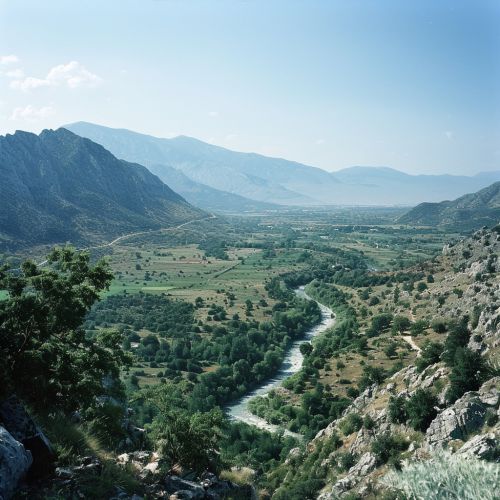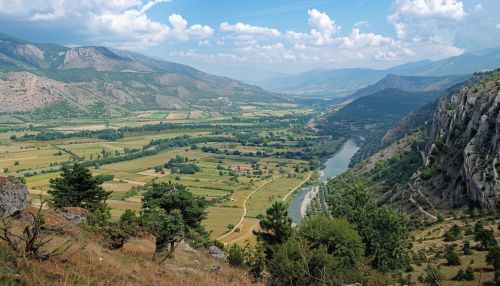North Macedonia
Geography
North Macedonia, officially known as the Republic of North Macedonia, is a landlocked country located in the Balkan Peninsula in Southeast Europe. It is bordered by Kosovo to the northwest, Serbia to the north, Bulgaria to the east, Greece to the south, and Albania to the west. It has a total area of 25,713 square kilometers. The country's terrain is characterized by a central valley formed by the Vardar River, surrounded by mountainous regions.


History
The history of North Macedonia dates back to the ancient times. The region was home to the ancient kingdom of Paeonia, which was later conquered by the Roman Empire. After the fall of the Roman Empire, the region was invaded by various barbarian tribes. In the late 9th century, it became part of the First Bulgarian Empire. The region was later ruled by the Byzantine Empire, the Ottoman Empire, and the Kingdom of Yugoslavia before gaining independence in 1991.
Politics
North Macedonia is a parliamentary republic. The President is the head of state, while the Prime Minister is the head of government. The country's legislative power is vested in the Assembly, which is a unicameral parliament composed of 120 members. North Macedonia is a member of the United Nations, the Council of Europe, and the World Trade Organization, and is a candidate for membership in the European Union.
Economy
The economy of North Macedonia is classified as an upper-middle income economy by the World Bank. The country's economy is primarily based on services, followed by industry and agriculture. Key sectors include food processing, textiles, chemicals, steel, and automotive. North Macedonia has made significant progress in its economic reform efforts, with improvements in the business environment and investment climate.
Culture
North Macedonia has a rich cultural heritage that reflects its long history and diverse influences. The country's culture is characterized by its traditions in music, dance, literature, visual arts, and cuisine. The Macedonian and Albanian are the two most widely spoken languages in the country.
